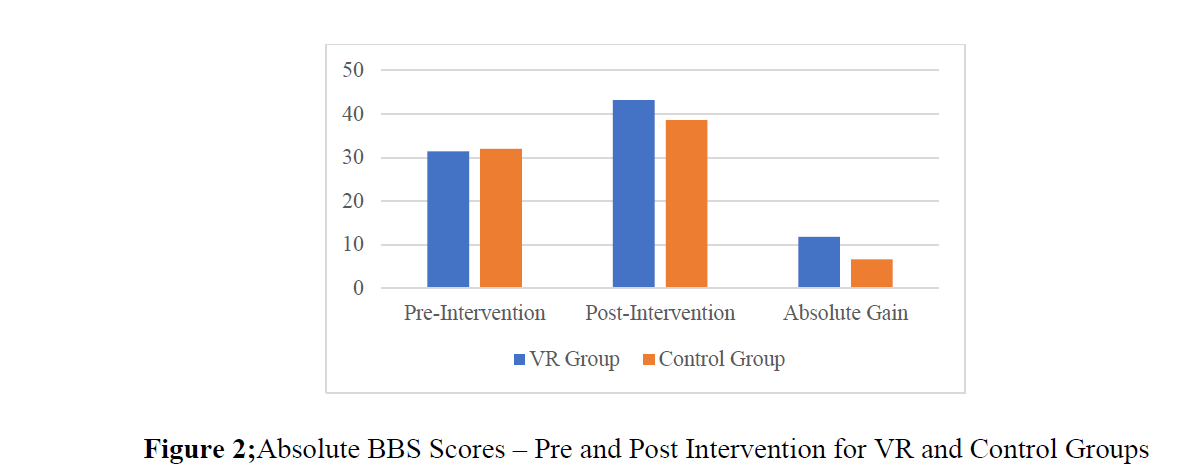The Impact of Virtual Reality-Based Physiotherapy on Stroke Rehabilitation Outcomes
Keywords:
- Virtual reality, physiotherapy, stroke rehabilitation, motor function, balance, cognitive function, patient satisfaction, rehabilitation outcomes, VR therapy
Abstract
The efficacy of the physiotherapy treatment (VR-based method) was evaluated as compared to conventional physiotherapy practices for the rehabilitation of the patients after a stroke. The quasi-experimental design was used with 40 stroke patients (20 VR group and the remaining 20 control group) who received six-week daily therapy. The primary outcome measures included were motor function (Fugl-Meyer Assessment, FMA), balance (Berg Balance Scale, BBS) and cognitive function (Mini-Mental State Examination, MMSE). According to the results, VR group improved significantly in motor function (35.7% vs 17.1%), balance (37.5% vs 20.6%), and cognitive function (16.2% vs 7.8%) in comparison with the control group. Further, the VR group also showed a higher level of patient satisfaction, 4.6 in overall satisfaction, 4.8 in enjoyment, 4.7 in desiring to continue therapy. These results suggest that physiotherapy using VR has better outcomes in motor, balance and cognitive rehabilitation as well as improved patient participation in this process which means that VR can be a promising option for rehabilitation of stroke victims. The need to explore the long-term results and cost-benefit of VR interventions in multiple clinical environments is heretowhile promoted.






